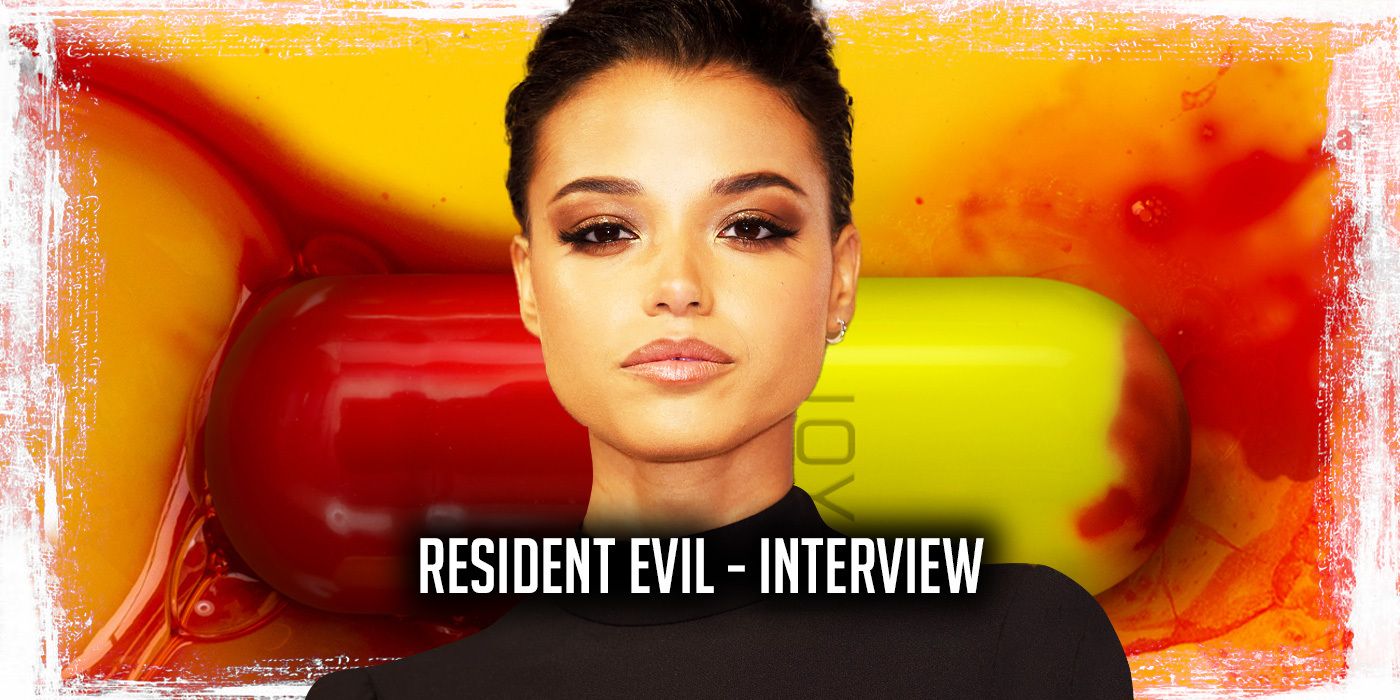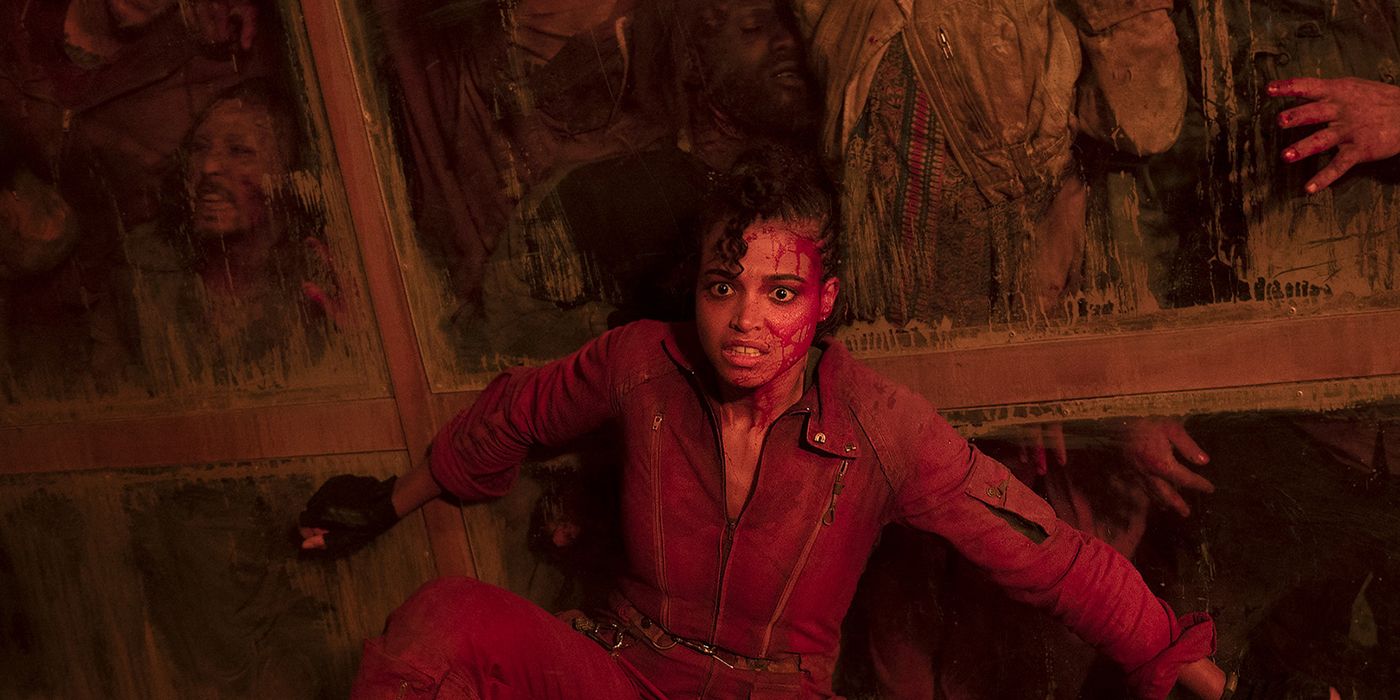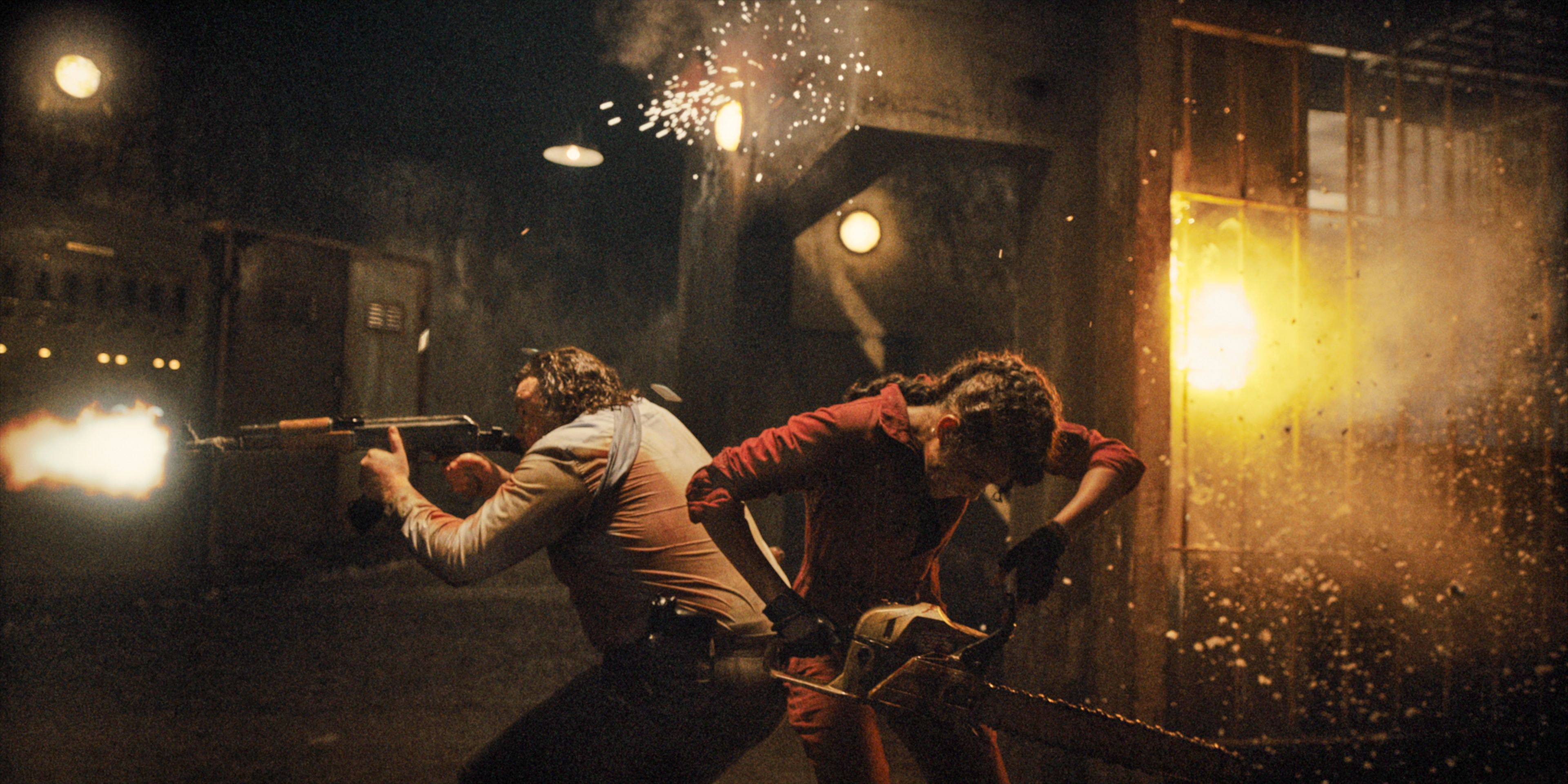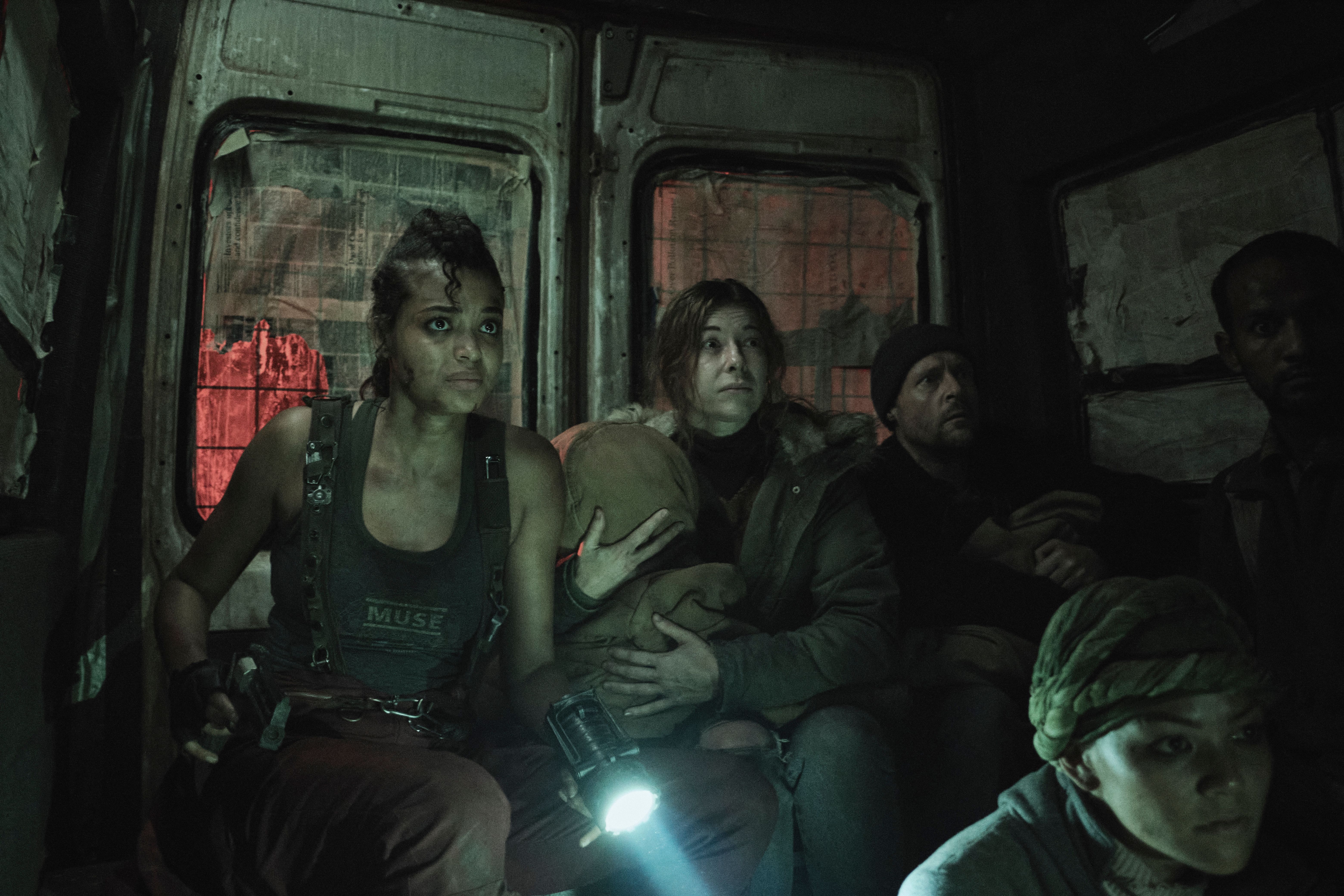From creator Andrew Dabb, the Netflix series Resident Evil (which hails from the popular media franchise created by Capcom) serves as the third live-action adaptation set in this universe. The show, which takes its backstory and lore from the video games but branches off into its own original continuity, is set over a perspective of dual timelines, one taking place in our present and one set in a semi-distant future.
In 2022, Dr. Albert Wesker (Lance Reddick) and his two daughters, Jade (Tamara Smart) and Billie (Siena Agudong) have recently relocated to a new planned community known as New Raccoon City, a vision established by the mysterious Umbrella Corporation — to which Wesker serves as an executive and researcher publicly tasked with the creation of a new product known as "Joy." In secret, however, Wesker is seeking to engineer a response to the epidemic of something called the "T-virus." Meanwhile, Jade and Billie, suspicious of their father's actual work, start digging into Umbrella's secrets — much to the chagrin of Wesker's boss and company head Evelyn Marcus (Paola Núñez).
In the future timeline of 2036, Jade (Ella Balinska) is on the run from Umbrella, who is seeking her for some nefarious purpose — but she also has to survive dangerous groups of "zeroes," those who have been infected by the T-virus, in order to make it home to her family. However, Jade's situation becomes even more complicated when it's revealed that not only Umbrella, but her sister Billie (Adeline Rudolph) has quite the bone to pick with her too.
Ahead of the show's July 14 premiere, Collider had the opportunity to speak with Balinska about joining the Resident Evil universe, as well as how stunt training for the role of Jade Wesker differentiated from her time on Charlie's Angels. Over the course of the interview, which you can watch above or read below, Balinska discusses how familiar she was with the franchise before being cast, how she collaborated with Smart given they play two versions of the same character, how the revelation of Billie's survival informs Jade's arc throughout the season, and more.
Collider: So excited to get the chance to talk to you about this show. I just finished watching Season 1 the other night, and it is a blast. I'm already kind of clamoring for more because where they leave [off] that with that cliffhanger? I can't wait.
ELLA BALINSKA: I know, it's an aggressive cliffhanger, the end of Season 1.
I'd love to take it back to before the show even started. How familiar were you with the Resident Evil franchise before you signed on?
BALINSKA: I had played the games and watched the movies, so I was familiar.
When did you officially learn who you'd be playing in the show? Did you audition for anybody else? Was it a case of maybe being up for a couple different roles? How did you finally end up playing Jade?
BALINSKA: So I sort of got the email straight away through for Jade, to be honest with you. It was under the guise of the title of Venus Flytrap, and I was like, "Oh, what's this? This is interesting." Read the script and then about two pages in you see the word Umbrella, and I was like, "Oh, Resident Evil, now I know what's happening here." I pretty much spoke with the producers, kind of got an idea of what they wanted to do with the character, with the show, with the art, with the world of Resident Evil, 'cause as a fan I was so curious to see how they would evolve the history that is the franchise. And then I essentially whacked a scene on tape of how I thought this character would approach this world and then the rest is history.
I don't think it's any exaggeration to say you kick ass on this show, and it's so fun to watch, but after working on a project like Charlie's Angels, I'm curious as to whether the training process was any different for you this time around. Did you have to approach stunts any differently? How intensive was that for you?
BALINSKA: Well, first of all, thank you. Second of all, actually the interesting thing about this process, like you say, it wasn't my first rodeo in the stunt sphere, especially with action. I had to unlearn a lot of the stuff that I've been trained in, because a character such as the one in Charlie's Angels who's a trained operative, very choreographed fight style, very regimented — but this with Jade, she is not a superhero, she's not a trained operative. So we wanted it to feel messy, we wanted it to feel dangerous, so we had to unlearn a lot of the... that sort of regimented fighting style. We did a lot of jujitsu which is a lot of grappling. It's a lot of moment-by-moment decision-making, which is exactly what we needed for the character so that hopefully when you watched these sequences, you do feel very much on the edge of your seat, and it does look a little bit more disheveled than something that is very polished.
There are definitely shots in this for your character specifically that look like they are pulled right from the game. I won't go into spoilers, but there's a shot from first-person perspective where Jade is stumbling around disoriented, and I was like, "This is [the] video game right here."
BALINSKA: Absolutely, that was something that was so important to us, for the producers, to really make that feeling from Resident Evil feel real in this series. That's something that even if you notice it, even if you don't, you still get that feeling, and I think that's something that you get definitely if you're a fan of the franchise.
You're kind of in a uniquely shared position on this show, because you're part of a group of actresses who are playing one of two versions of the same character. As we find out in the show, it's set between past and present with the difference of I believe about 14 years between the two. I'm wondering how collaborative it was for you getting to work with the other actresses — especially Tamara [Smart], playing the younger version. Was there anything you got to watch from her performance? Anything that you tried to kind of take from her to bring into your own? How collaborative of a process was that?
BALINSKA: Yeah, this was an example of two people being cast who really had a strong grasp of what we wanted to do with the character. We met for the first time on set in South Africa, so the chemistry that we had even though we weren't working together, it was more sort of just a seamless streamlined... One of those sibilant words take on Jade Wesker, and it was such a pleasure being able to watch Tamara on her timeline, which was a lot cleaner than mine, sort of make the decisions that she made as a younger Jade which informed all of the decisions that she made in 2036. A lot of the traumas that happened to her in the past and how they carry on into the present, even something as small as her unapologetic stubbornness and sort of fire that she has, which then comes out in moments in 2036, but also seeing the guilt that she carries through both timelines, I think, adds a very human and engaging character arc for her.
One of the themes in the show that feels so important is family, and we get to see that take shape in a lot of different ways. In the past, there's definitely more of a nuclear family that's established but then in the future, Jade also has her own sense of family that she has established which is shattered a little bit by the sudden reveal that Billie is still around, someone who she had believed to have been gone. How does that inform her arc, that revelation and how it plays out for the season?
BALINSKA: Jade does her absolute best in the past to stand by her sister as much as possible to the point where it gets her into trouble, and she realizes that, and she carries this responsibility and this guilt that I've previously mentioned all the way up until 2036. Obviously, the traumatic events of the T-virus and Umbrella taking over happens in those 14 years in between, which lands her in 2036 where we are in this sort of survival mode way of human life. She has done her best to create her own family, to try and do everything in the best way that she can but still, this is the interesting part about Jade is that you love her and you kind of dislike her because there is a lot of things that she does that are very questionable.
She's away from her family [for] six months, which is with her daughter who is going through her formative years, whereas she's also out there trying to solve the T-virus, figure out a cure for that, and learn more about the zeroes to try and make the world a better place for her daughter. It's a very interesting mix between responsibility and guilt, but also this undying need to try and problem solve on her own. She has an innate need to be independent and to fix things, because she broke them so aggressively in the past.
Resident Evil is currently available to stream on Netflix.




